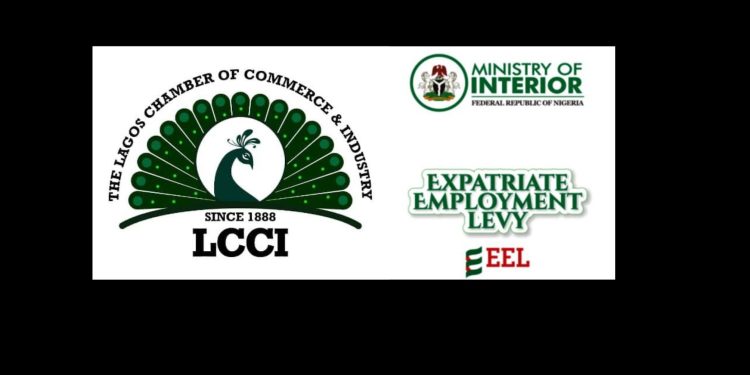The Lagos Chamber of Commerce and Industry (LCCI) has voiced its concerns regarding the recent implementation of the Expatriate Employment Levy (EEL) by the Federal Government of Nigeria. The new policy is designed to bridge wage gaps between expatriates and the Nigerian workforce, fostering skills transfer and encouraging the employment of qualified local talents in foreign-owned companies.
While acknowledging the government’s intention to enhance the business environment and promote local employment opportunities, the LCCI is apprehensive about potential negative perceptions among foreign investors. The chamber emphasizes the importance of a balanced approach to expatriate employment to safeguard Foreign Direct Investment (FDI) inflows.
The LCCI points out that Nigerian nationals constitute only 59% of total jobs in the country, and their wages account for less than 45% of total wages. Additionally, the average basic salary of expatriates is more than 45% above the basic salary of local workers.
Concerns and Recommendations:
1. Conducive Business Environment for FDIs: The LCCI emphasizes the need for a business-friendly environment to attract Foreign Direct Investments (FDIs). The chamber suggests exempting sectors with unique skill requirements, especially in construction and areas facing critical shortages of goods.
2. Administrative Procedures: The imposition of the EEL adds an additional administrative burden for expatriates alongside the Combined Expatriate Residence Permit and Alien Card (CERPAC). The LCCI recommends continued collaboration with the established CERPAC system to present Nigeria as open for business.
3. Potential Business Relocation: The LCCI expresses concern that the EEL may lead to unintended consequences, such as the relocation of foreign companies to more cost-effective and conducive business environments in neighboring countries.
4. Retaliatory Actions: The imposition of the levy may trigger retaliatory actions by other countries, affecting Nigerian workers abroad and impacting diaspora remittances.
5. Consultation with Relevant Committees: The chamber recommends involving committees like the Presidential Committee on Fiscal Policy and Tax Reforms for input aligned with improving the business environment. Alignment with existing frameworks, such as those of the Nigerian Content Development and Monitoring Board (NCDMB) and regulatory bodies, is also advised.
6. Cost Implications: The LCCI emphasizes that maintaining expatriates in Nigeria is expensive and calls for consideration of the necessity and technical skills required for critical roles that are not readily available locally.
7. Comparison with Other Economies: The LCCI compares the proposed EEL with practices in developed economies like the United Kingdom and the United States, suggesting a reconsideration of the rate, implementation timeline, and possible combination with the CERPAC permit.
In conclusion, while acknowledging the government’s efforts to boost local employment and skills development through the EEL, the LCCI urges a careful balance to prevent the levy from hindering the attraction and retention of crucial foreign investments essential for economic growth.















